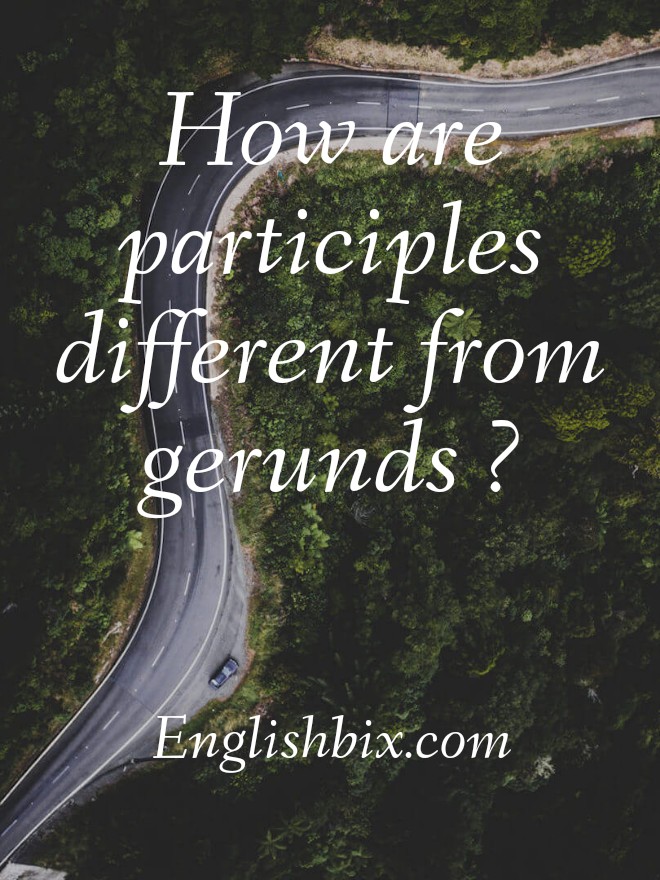Today, we have this simple rules guide to help you properly identify gerunds and participles in sentences. As we have been regularly studying English grammar. We came across numerous words that end with -ing verbs. But did we ever thought what are they and how they can be used in English Grammar? Since the simple gerund and the present participle have the same form (verb-ing), sometimes it can be difficult to decide whether an -ing form is a gerund or a present participle. Many experienced, as well as authors who have been using working with Enligh subject, also gets confused with the usage of gerunds and present participle.
Gerund vs Participle : How are they different
You might have observed that some native English speakers or language users often get confused as to when and how to differentiate Gerunds and Participles and how to apply them properly in a sentence. But this is what the beauty of the English language.
In today’s session, we will be discussing the difference between them Gerunds and Participles. With proper understanding, we will put up some example sentences for you to know the difference. By the end of this session, we will provide some simple tips that will help you to remember the difference between the two.
Let’s begin by knowing the basic definition of both.
Gerunds : What do they mean and Examples
Gerunds are basically the words in verb form that can be used as a noun in the sentences. They are also considered as Verbal nouns. By this, it is meant that the words that end with ‘-ing’. You might observe that these words are used to express a general action that is usually incomplete. For example
He might be resigning from the duty very soon.
Here in the above sentence the word ‘resigning’ is a gerund. The basic word or verb that would complete the entire meaning of the sentence would be ‘resign’. This is also one of the biggest reason why most of the people who deal with grammar consider it a combination of a verb and a noun.
Let us see some examples of gerunds :
- Swimming in the sea has been Mona’s passion since she was five years old.
- You must go to dancing at the club tonight.
- We will get it delayed by telling Merry the bad news.
- Meena decided that strolling in gardens was the most incredible experience she’d ever had.
Participles: What do they mean and Examples
The are generally verbs that can be used in the sentences to operate as adjectives. Participles are somewhat different from Gerunds. They can easily be used as a verb as well as an adjective. Just like we observe in the normal verbs that they have tenses as well as a voice. Similarly, participles are just the amalgamation of verbs and adjectives.
Following are some examples of participles
- Will you help me set up the leaning column of blocks?
- Arriving late, Mary sat in the back row.
- Have you ever read The Giving Tree?
- Did you see? Bill was speeding toward the finish line to finish the race.
- The boy was observed dreaming of being a doctor and decided to take an extra science class.
In this extensive session, the major thing that we learned about gerunds and participles is that Gerunds are a combination of Verb and Noun. Similarly, participles are a combination of verb and adjectives. So, now you might be very clear with the difference in both the words and how they can be used separately to complete the sentences in English. EnglishBix is one such website where you would find answers to all your queries related to English. Stay tuned with us to get more updates.
Psst, how about saving this post for later … on Pinterest?? , Let others also learn about this.


